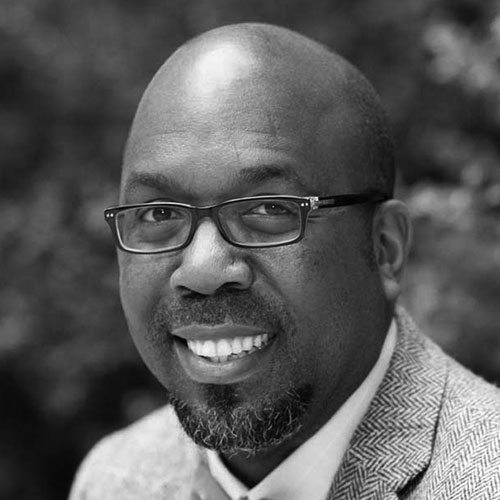Learn how ZERO – The End of Prostate Cancer explores health disparities in prostate cancer, and how organizations like ZERO are working to achieve health equity.

Dr. Reginald Tucker-Seeley
Vice President of Health Equity, ZERO – The End of Prostate Cancer
According to the American Cancer Society, prostate cancer is a disease that will affect 1 in 8 American men in their lifetime. Additionally, prostate cancer is the most common cancer (excluding skin) and the second leading cause of cancer death (after lung cancer) among men in the United States. Yet, the incidence of prostate cancer is almost 73% higher in Black men than in white men. Black men are approximately 1.5 times more likely to be diagnosed with and more than twice as likely to die from prostate cancer compared to white men.1 So where do the disparities lie between prostate cancer experiences for Black men and their white counterparts, and how do organizations within the prostate cancer community actively address these alarming statistics?
The social conditions in which we live have a profound impact on our health and well-being, as well as how we navigate and manage our healthcare. These conditions can determine the resources we have access to that can be used to avoid disease risks or to minimize the impact of disease. Deprivation in these social conditions produces poor health and healthcare-related outcomes, and the differential distribution of that deprivation across racial/ethnic groups produces the racial disparities we see across health and healthcare-related outcomes.
Social determinants of health
These social conditions are referred to as the social determinants of health (SDOH) and have been defined by the World Health Organization as the “conditions in which people are born, grow, live, work, and age and the fundamental drivers of those conditions.”2 There are substantial differences in the SDOH across racial groups in the United States, and anyone who has navigated the healthcare delivery system in the United States has experienced that where we live and where we work have an impact on our health and how we navigate healthcare. It has been suggested that these disparities, including the disparities between Black and white men within the world of prostate cancer, are due to “a combination of social (e.g., racism), economic, access to care, environmental, lifestyle, and genetic ancestry differences across Black and white men.”3 Unfortunately, these factors have an impact on the prostate cancer experience from prevention and detection/diagnosis to treatment, survivorship, and the likelihood of death from this disease.
Healthy equity initiatives
While actively researching and recording these daunting statistics has called significant attention to these disparities in both the medical and public realms, there is more work to be done. Through the work of prostate cancer researchers and nonprofits such as ZERO – The End of Prostate Cancer, there has been a significant movement to achieve health equity, where health equity means that everyone has a fair and just opportunity to find, prevent, treat, and survive prostate cancer.
ZERO’s Black Men’s Prostate Cancer Initiative is part of ZERO’s health equity effort to address the racial/ethnic disparities in prostate cancer experienced by Black men. The initiative is a program that includes support groups and education and awareness activities to help Black men as they manage prostate cancer and navigate the cancer care delivery system. Initiatives and programs such as these are not only vital to helping Black men navigate their individual diagnoses and treatments, but also to combating health disparities and working to permanently eliminate them from medicinal science, particularly prostate cancer, altogether.
Together, we must decide that these differences are no longer tolerable or acceptable and commit to eliminating racial/ethnic disparities in prostate cancer. To ensure that our fathers, grandfathers, brothers, uncles, and cousins are not taken from us too soon, it is imperative that we not only expect health equity in prostate cancer, but also demand we receive it.
[1] Key Statistics for Prostate Cancer, American Cancer Society, 2022
[2] Commission on Social Determinants of Health: Closing the Gap in a Generation: Health Equity Through Action on the Social Determinants of Health: FinalReport of the Commission on Social Determinants of Health. Geneva, Switzerland, World Health Organization, 2008
[3]Chowdhury-Paulino, I. M., Ericsson, C., Vince Jr, R., Spratt, D. E., George, D. J., & Mucci, L. A. (2021). Racial disparities in prostate cancer among black men: epidemiology and outcomes. Prostate cancer and prostatic diseases, 1-6.

